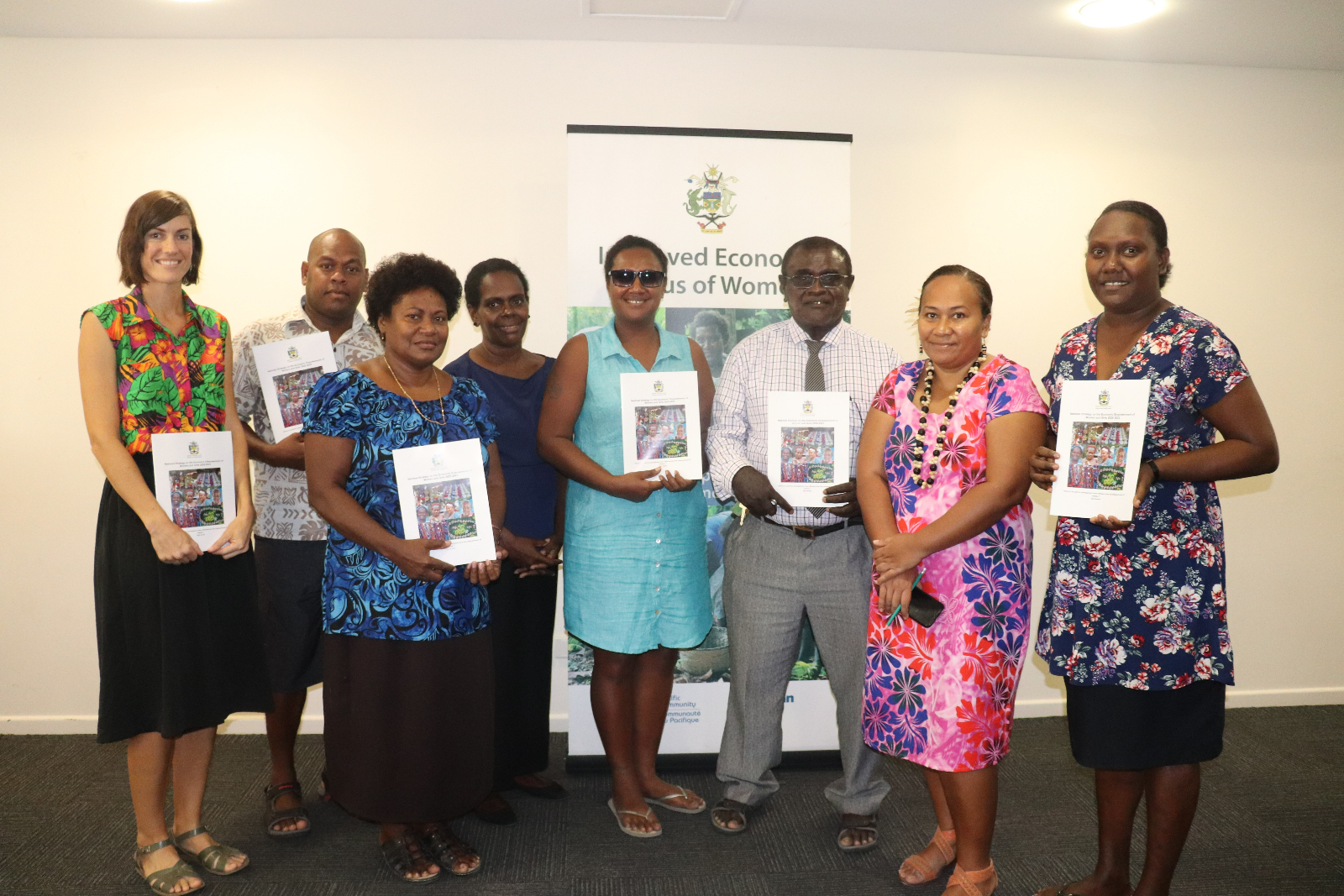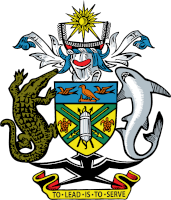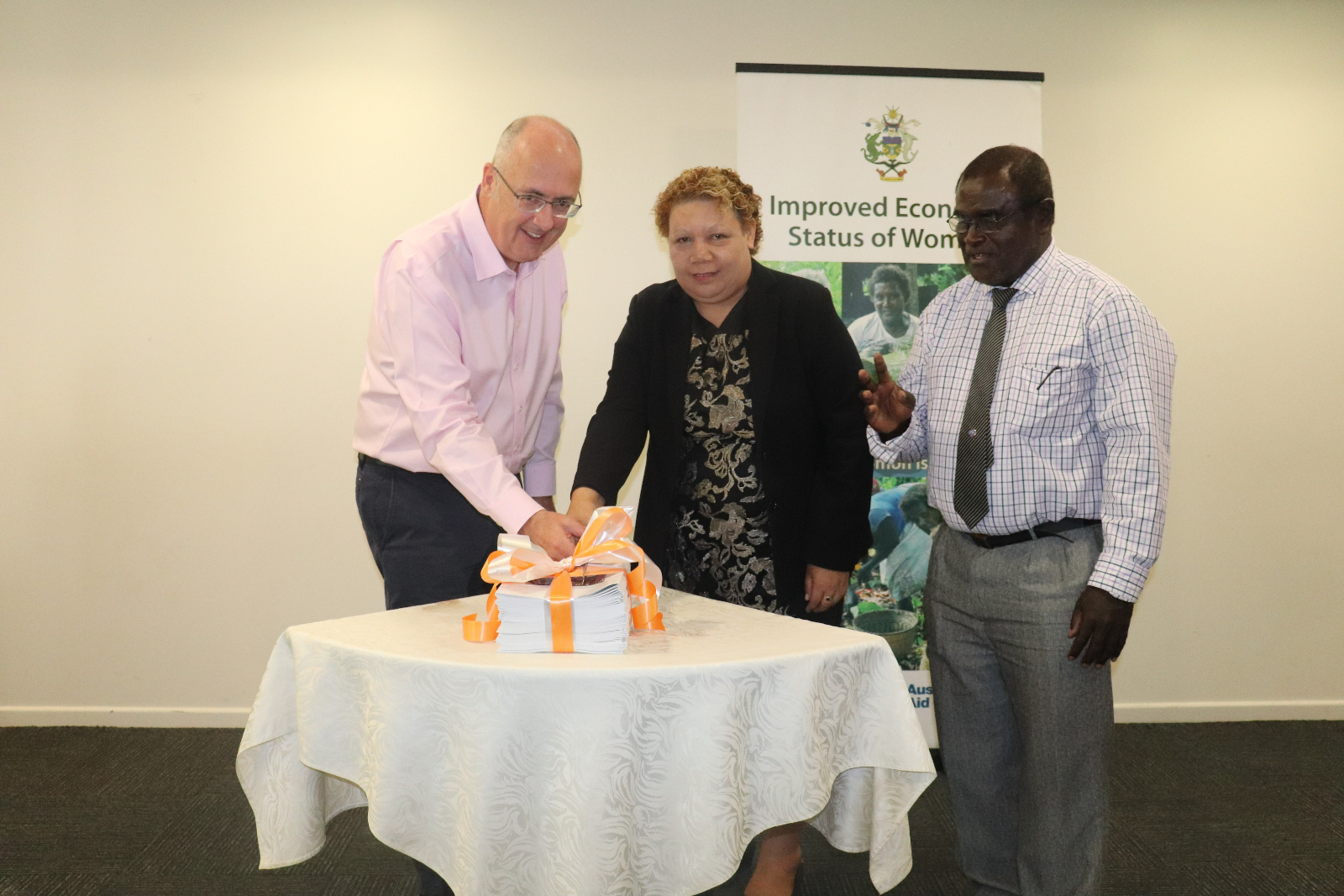The Ministry of Women, Youth, Children and Family Affairs has launched the revised National Strategy for Economic Empowerment of Women & Girls 2020-2023 on Friday 30th July.
The National Strategy for Economic Empowerment of Women & Girls 2020-2023 builds on the first national strategy which was implemented from 2015-2019 and reviewed in 2020 to assess its effectiveness across its five strategic focus areas. One success story from the previous Strategy was the increase in saving clubs established under the Ministry of Women Youth, Children and Family Affairs, reaching into the provincial and rural communities.
The purpose of the second Strategy is to address the gaps and areas for improvement identified in the review of the previous Strategy and pave the way for women and girls in Solomon Islands to realizing their economic potentials.

The Strategy identifies the following key strategic focus areas to realizing women’s economic empowerment: supporting gender mainstreaming as an approach to working with the whole of government; addressing financial inclusion especially targeting the informal sector; enterprise development and improved employment opportunities; creating an enabling environment through legislation and policy changes; and the institutional strengthening of Ministry of Women, Youth, Children and Family Affairs.
Minister Freda Rotutafi Rangirei said these five strategic areas will continue to ensure improvement on what has been done and address the gaps needed to pave way for women to realize their economic potentials so women’s economic status can be improved.
She said implementation of the second Strategy places more emphasis on reaching rural and remote areas, building stronger partnerships and linking economic empowerment more closely to other elements of the National Gender Equality and Women’s Development Policy particularly gender mainstreaming, women’s leadership, preventing violence and increased access to education for women and girls.
Quoting Kofi Annan, Minister Fred Rotutafi Rangirei highlighted the role of women in development, “There is no tool for development more effective than the empowerment of women” she said.
Australian High Commissioner, Dr Lachlan Strahan, reiterated the value of the community working together to empower women.
“The pandemic has placed a disproportionate economic burden on women. Women’s participation in the labour market is lower than men, women still take up more informal and vulnerable jobs, women carry the larger burden of unpaid domestic work and childcare. This often goes uncounted and unrecognised, women are still paid less, they have much lower access to social protection, they are much less likely to have bank accounts and have less access to the digital economy,” said Dr Strahan.
Dr Strahan said the National Strategy seeks to improve the ability for a woman to participate equally in existing markets, increase access to and control over productive resources, get decent jobs and participate meaningfully in economic decision making from the household level right up to larger institutions. Australia has been a tireless supporter of gender equality and the empowerment of women and girls in Solomon Islands.
Meanwhile, the Permanent Secretary of the Ministry of Women, Youth, Children and Family Affairs Dr. Cedrick Alependava acknowledged all stakeholders, development partners and Women’s Development Division of the Ministry of Women, Youth, Children and Family for the partnership and collaboration in the implementation of the first strategy and looks forward to the continues cooperation in the effective implementation of the revised framework.
He said a National Task Force will be established to provide guidance and strategic leadership in monitoring the strategy’s implementation progress.
The National Strategy for Economic Empowerment of Women & Girls 2020-2023 is a key outcome of the Ministry’s National Gender Equality and Women’s Development Policy 2016-2020 Priority Outcome 2: Improved Economic Status of Women. The Strategy is also aligned to Solomon Islands national, regional and international commitments to advancing gender equality and improving the economic status of women and girls in Solomon Islands.
The Ministry of Women Youth Children and Family Affairs would like to sincerely thank the Australian Department of Foreign Affairs and Trade under its Gender Equality Program for their financial and technical support to the review and launching of the Strategy.

